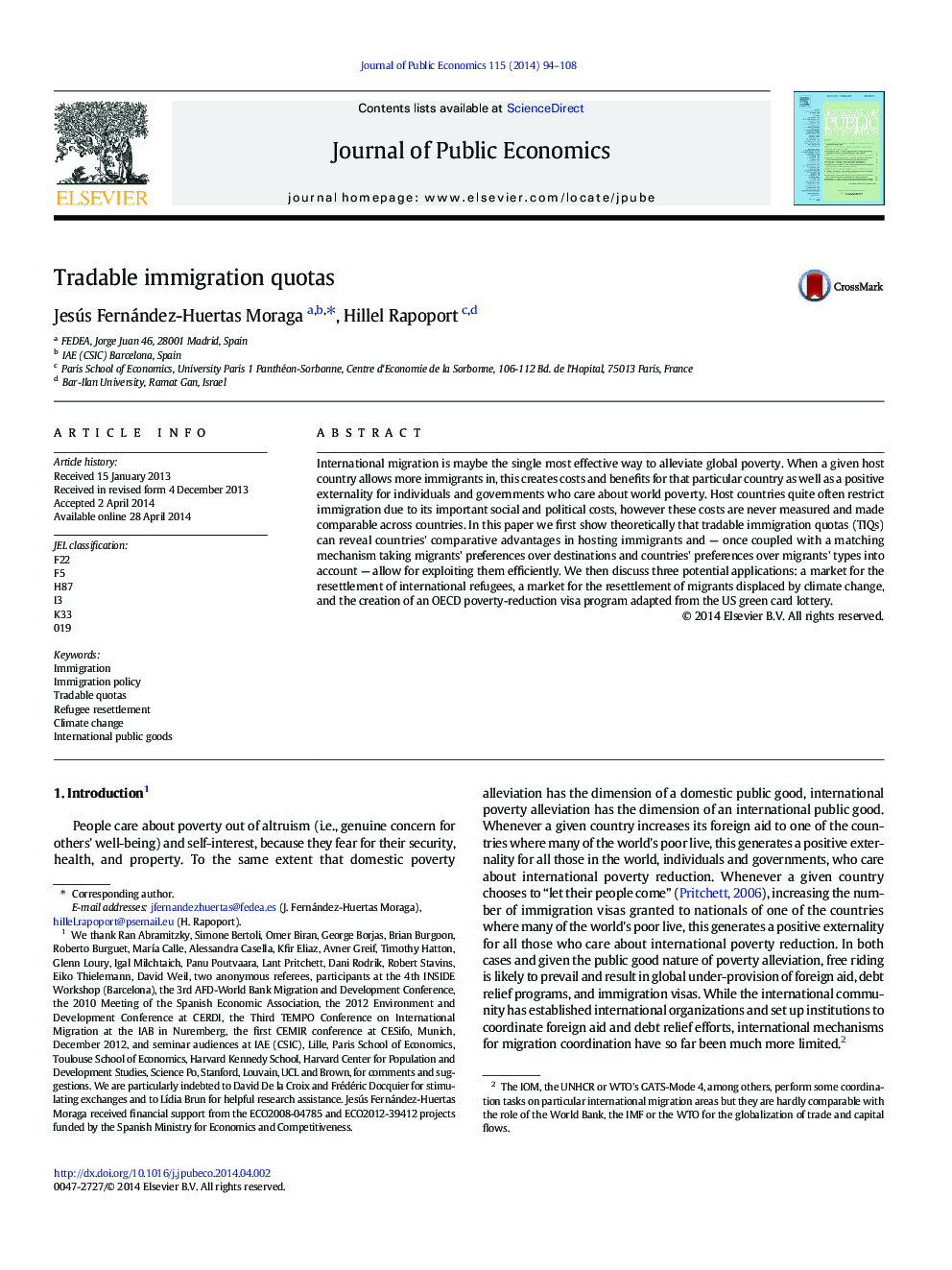| Article ID | Journal | Published Year | Pages | File Type |
|---|---|---|---|---|
| 969725 | Journal of Public Economics | 2014 | 15 Pages |
•A market for tradable immigration quotas (TIQs) coordinates migration policies.•TIQs’ efficiency gains can be increased with a matching mechanism.•The matching mechanism connects migrants to their preferred destinations.•The matching mechanism connects host countries to their preferred migrant types.•TIQs could be applied to refugees, climate-change and world poverty reduction.
International migration is maybe the single most effective way to alleviate global poverty. When a given host country allows more immigrants in, this creates costs and benefits for that particular country as well as a positive externality for individuals and governments who care about world poverty. Host countries quite often restrict immigration due to its important social and political costs, however these costs are never measured and made comparable across countries. In this paper we first show theoretically that tradable immigration quotas (TIQs) can reveal countries' comparative advantages in hosting immigrants and — once coupled with a matching mechanism taking migrants' preferences over destinations and countries' preferences over migrants' types into account — allow for exploiting them efficiently. We then discuss three potential applications: a market for the resettlement of international refugees, a market for the resettlement of migrants displaced by climate change, and the creation of an OECD poverty-reduction visa program adapted from the US green card lottery.
